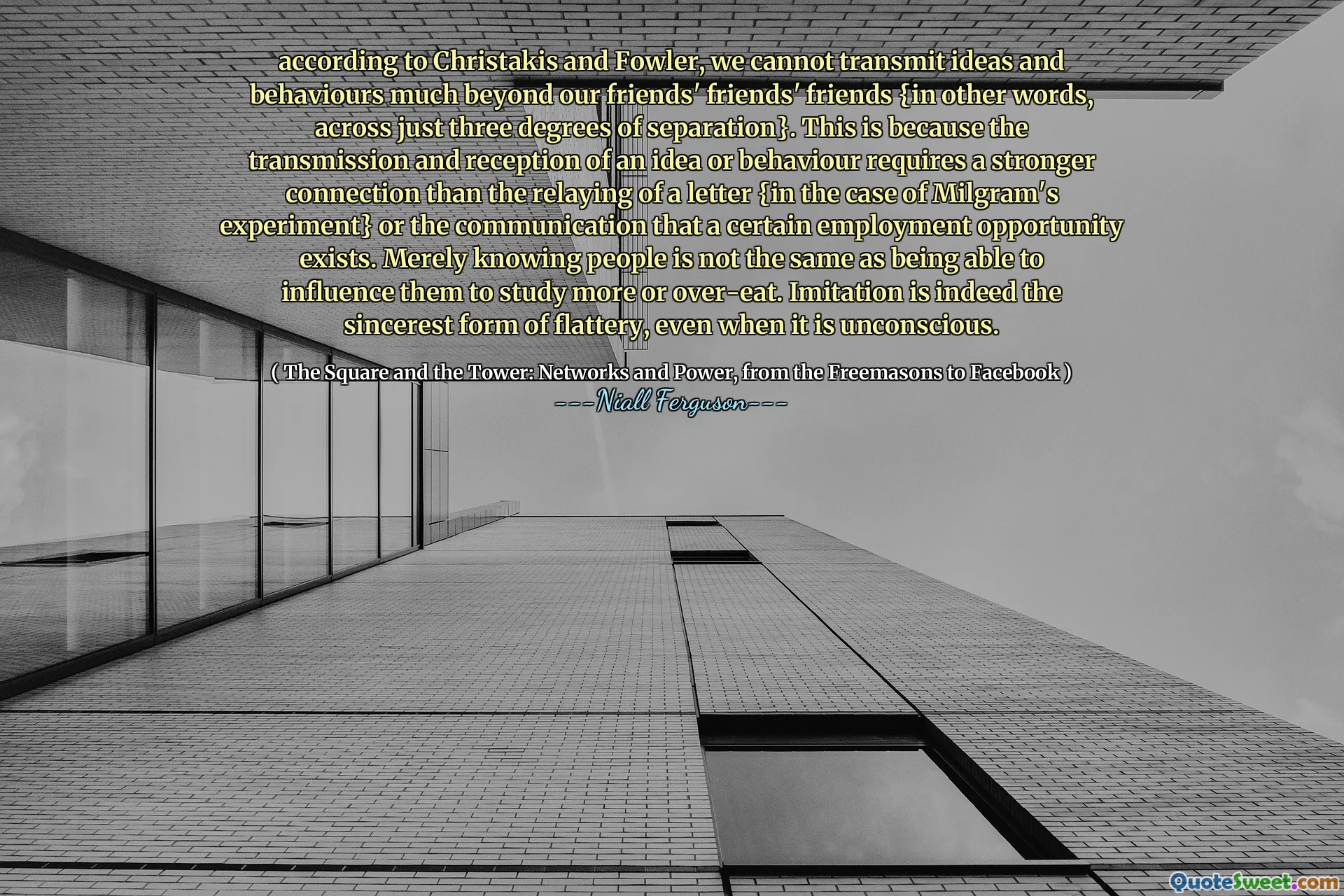
according to Christakis and Fowler, we cannot transmit ideas and behaviours much beyond our friends' friends' friends {in other words, across just three degrees of separation}. This is because the transmission and reception of an idea or behaviour requires a stronger connection than the relaying of a letter {in the case of Milgram's experiment} or the communication that a certain employment opportunity exists. Merely knowing people is not the same as being able to influence them to study more or over-eat. Imitation is indeed the sincerest form of flattery, even when it is unconscious.
According to Christakis and Fowler, the transmission of ideas and behaviors is limited to a maximum of three degrees of separation, meaning we can influence others only through our immediate friends and their social networks. This limitation suggests that meaningful connections are essential for impactful communication, as simply knowing someone does not guarantee the ability to influence their actions or thoughts.
Niall Ferguson's book, "The Square and the Tower," emphasizes that the relay of ideas requires a depth of connection that transcends mere acquaintance. The phenomenon of imitation, which often occurs unconsciously, reinforces the idea that genuine relationships facilitate real influence, making it more likely that behaviors, like studying or dieting, are adopted within close-knit groups.











